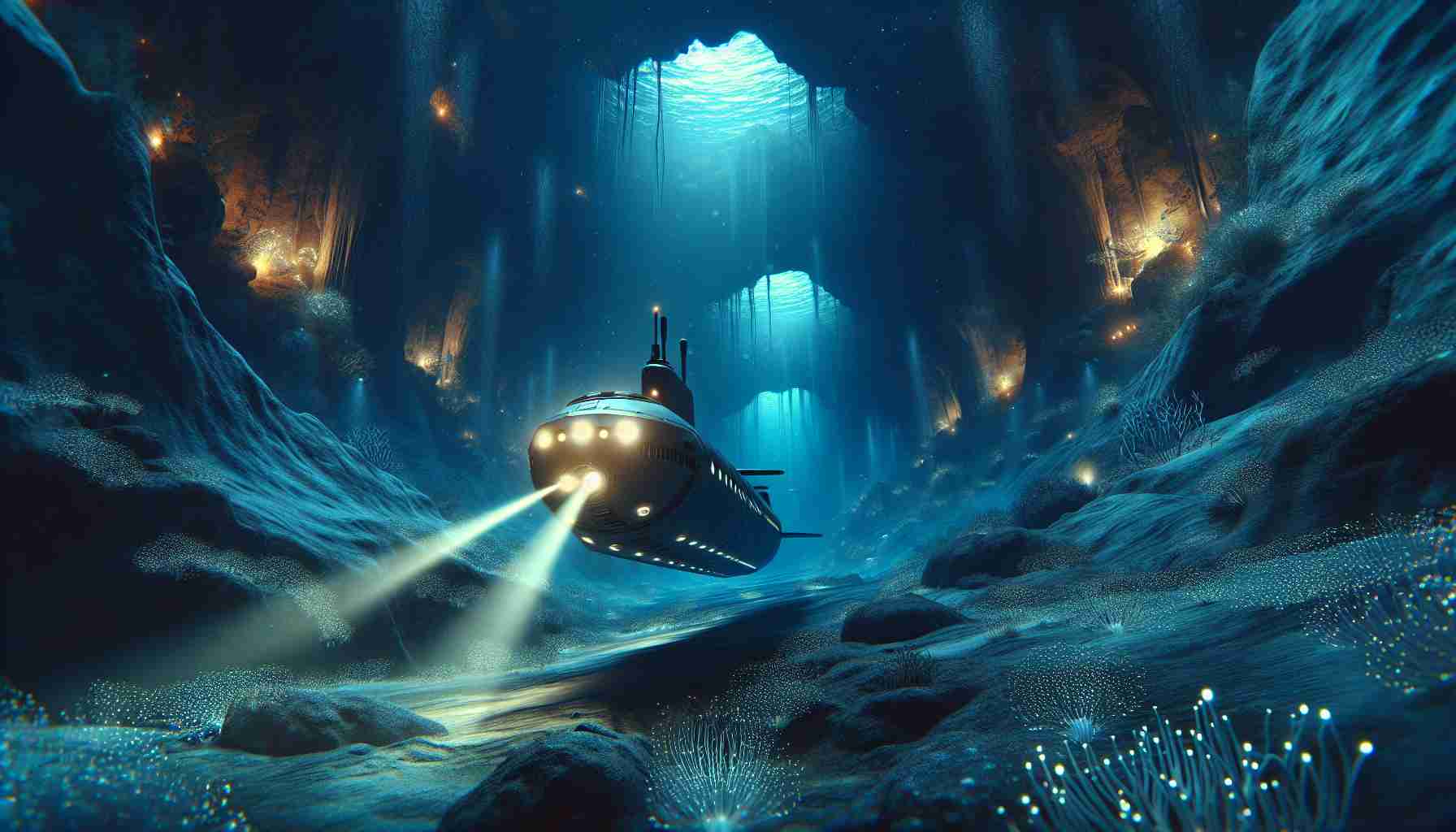A state-of-the-art vessel, brimming with curious scientists and cutting-edge technology, has descended into the dark depths of the ocean in an expedition marking a pioneering moment in marine exploration.
The vessel, known as the Deep Blue Discovery, gently submerged into the tranquil waters off the coast of a remote island at dawn. A team of skilled marine biologists and researchers swiftly leaped into action, eager to unveil the mysteries lurking beneath the surface.
With precision and expertise, the crew conducted a series of groundbreaking experiments and observations, shedding light on the enigmatic world beneath the waves. They carefully documented an array of fascinating marine creatures and peculiar habitats, capturing the essence of an ecosystem seldom seen by human eyes.
Upon resurfacing, the team was greeted with a buzz of excitement as the vessel was hoisted back on deck, revealing a trove of valuable data and remarkable discoveries. The scientists, beaming with pride and satisfaction, embarked on the journey back to port, eager to share their findings with the world.
As the sun dipped below the horizon, casting a warm glow over the horizon, the Deep Blue Discovery set sail once more, destined for new adventures and uncharted territories in the vast expanse of the ocean.
Stay tuned as we delve deeper into the realm of the sea, unlocking its secrets one expedition at a time.
Exploring New Frontiers: Delving Deeper into the Mysteries of the Deep Sea
Introduction: The exploration of the deep sea remains a captivating endeavor that continues to intrigue scientists and researchers worldwide. While previous expeditions have yielded valuable insights into the marine world, new frontiers in this field present a plethora of unanswered questions and challenges that stir curiosity and spark debate.
Key Questions:
1. What are the potential benefits of exploring the deep sea beyond scientific discovery?
2. How do deep-sea species adapt to extreme environments and pressures?
3. What role do deep-sea ecosystems play in the overall health of our oceans?
4. How can advancements in technology aid further exploration of the deep sea?
New Insights and Challenges:
– Unique Ecosystems: The deep sea is home to a myriad of species that have adapted to survive in extreme conditions, such as total darkness and high pressure. Understanding these adaptations can provide valuable knowledge for various fields of study, including medicine and biotechnology.
– Biodiversity Hotspots: Contrary to earlier beliefs, recent discoveries have unveiled the presence of biodiversity hotspots in the deep sea, raising questions about conservation efforts and sustainable resource management.
– Climate Change Impacts: The deep sea plays a crucial role in regulating Earth’s climate, yet climate change poses a significant threat to these delicate ecosystems. Studying these impacts and implementing conservation measures are pressing challenges.
Advantages and Disadvantages:
– Advantages: Exploring the deep sea offers the potential for groundbreaking scientific discoveries, technological innovations, and a deeper understanding of Earth’s complex ecosystems. It can also lead to the identification of new resources and bioactive compounds with industrial applications.
– Disadvantages: The challenges associated with deep-sea exploration include high costs, technical difficulties, and the potential environmental impacts of human activities in these fragile ecosystems.
Related Links:
– National Oceanic and Atmospheric Administration – Ocean Explorer
– Woods Hole Oceanographic Institution
– International Union for Conservation of Nature (IUCN)
Conclusion: The journey into the depths of the ocean continues to inspire awe and wonder, fueling a passion for uncovering the mysteries that lie beneath the waves. By addressing key questions, navigating challenges, and embracing new discoveries, we can illuminate the hidden realms of the deep sea and expand our knowledge of one of Earth’s most enigmatic frontiers.
